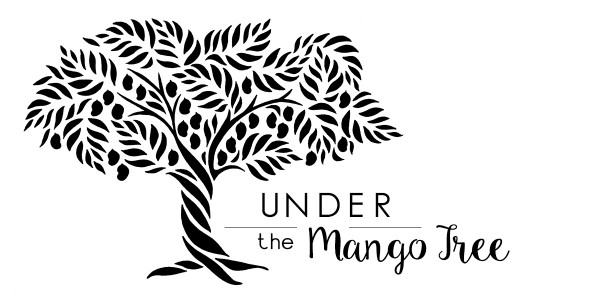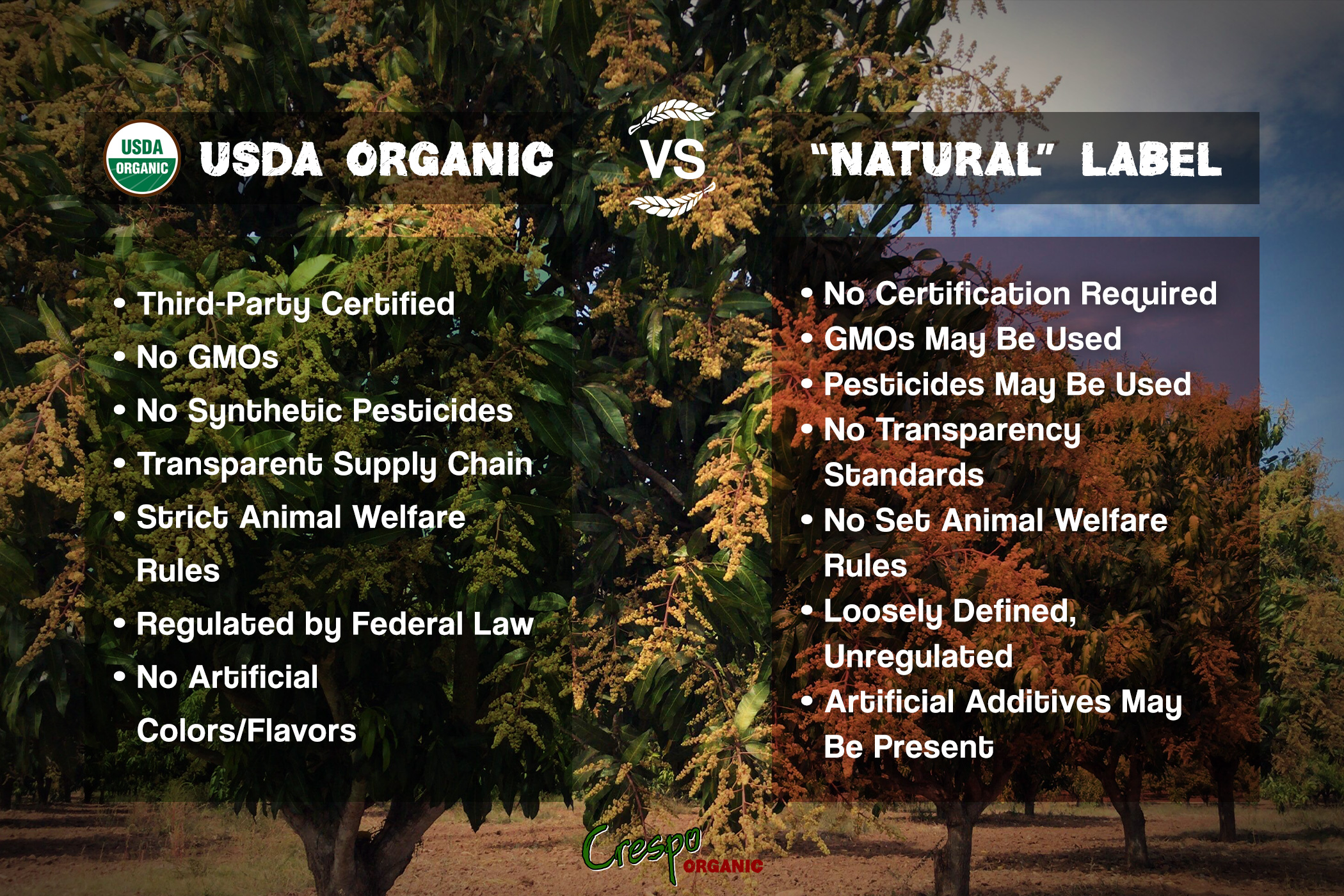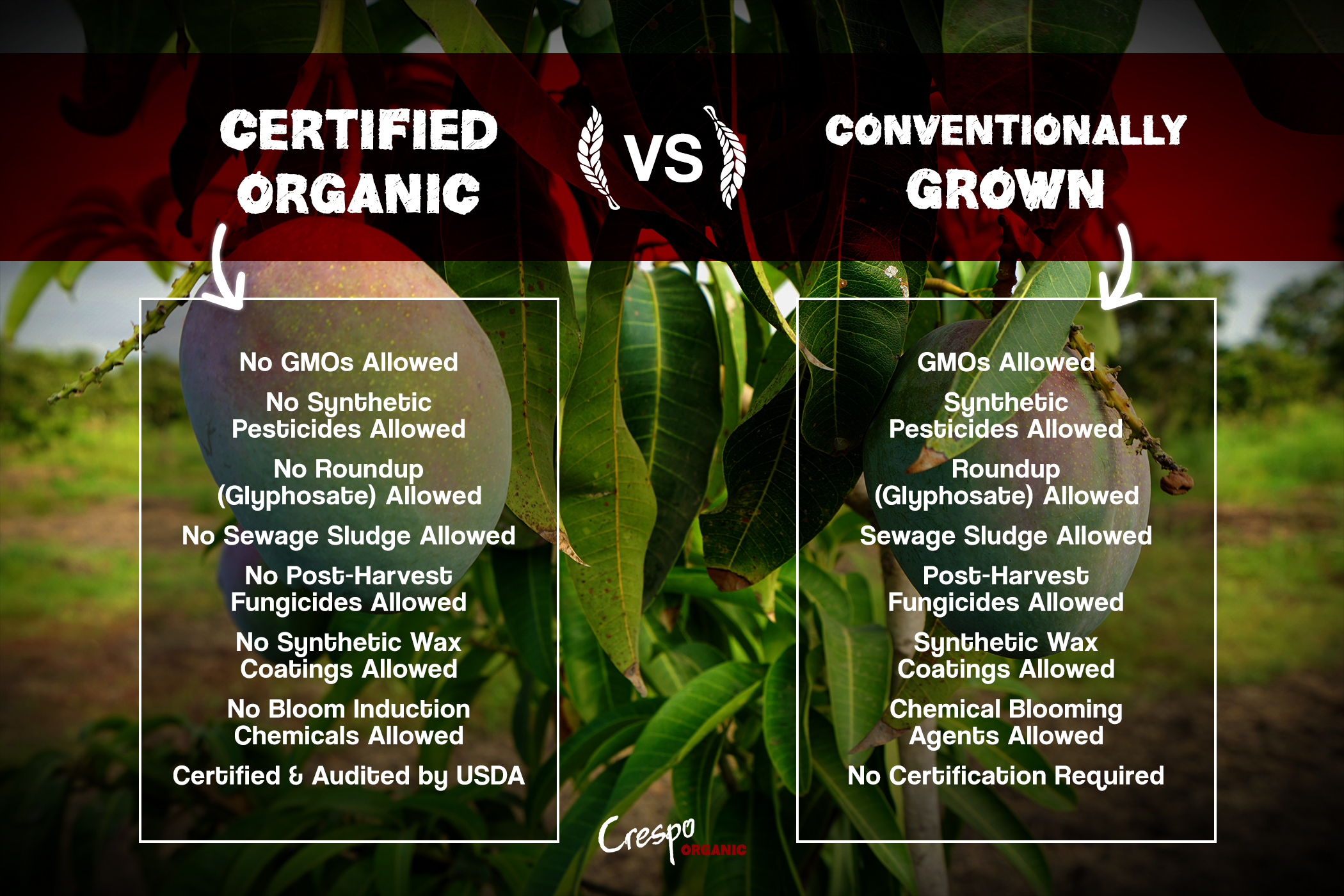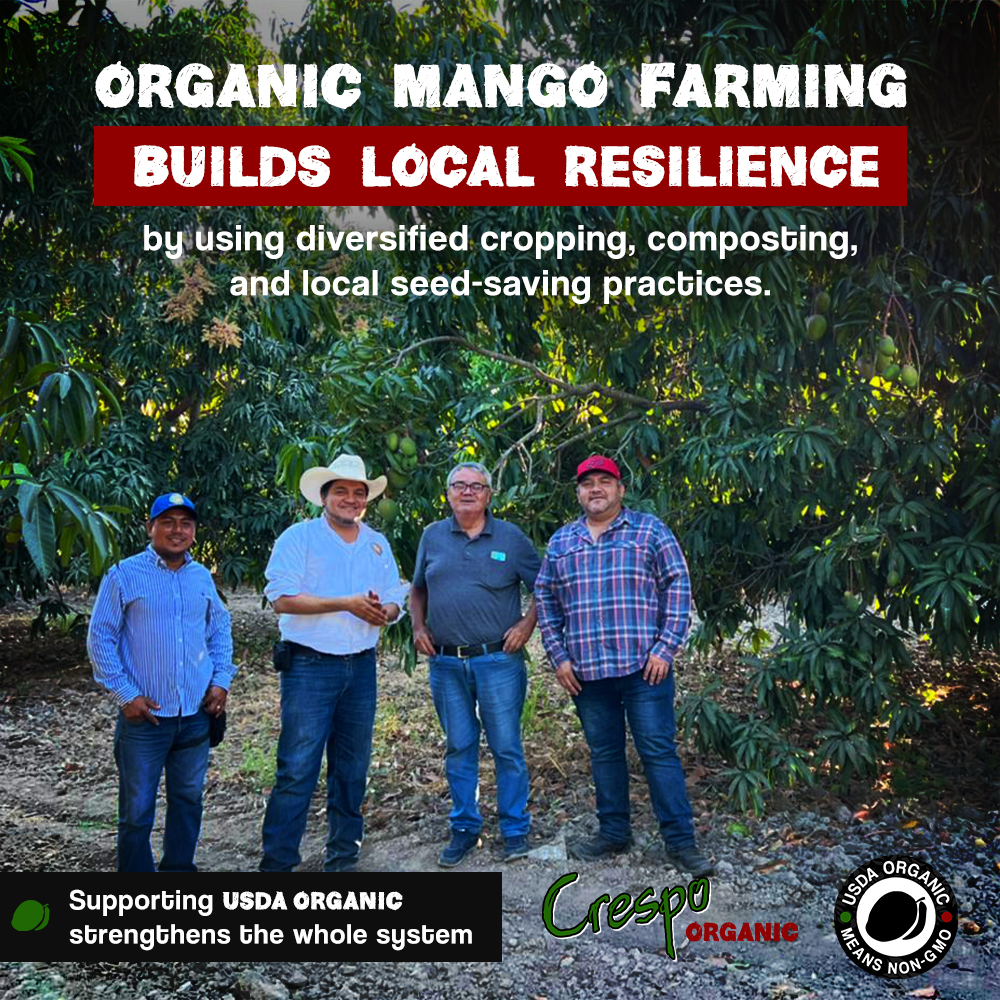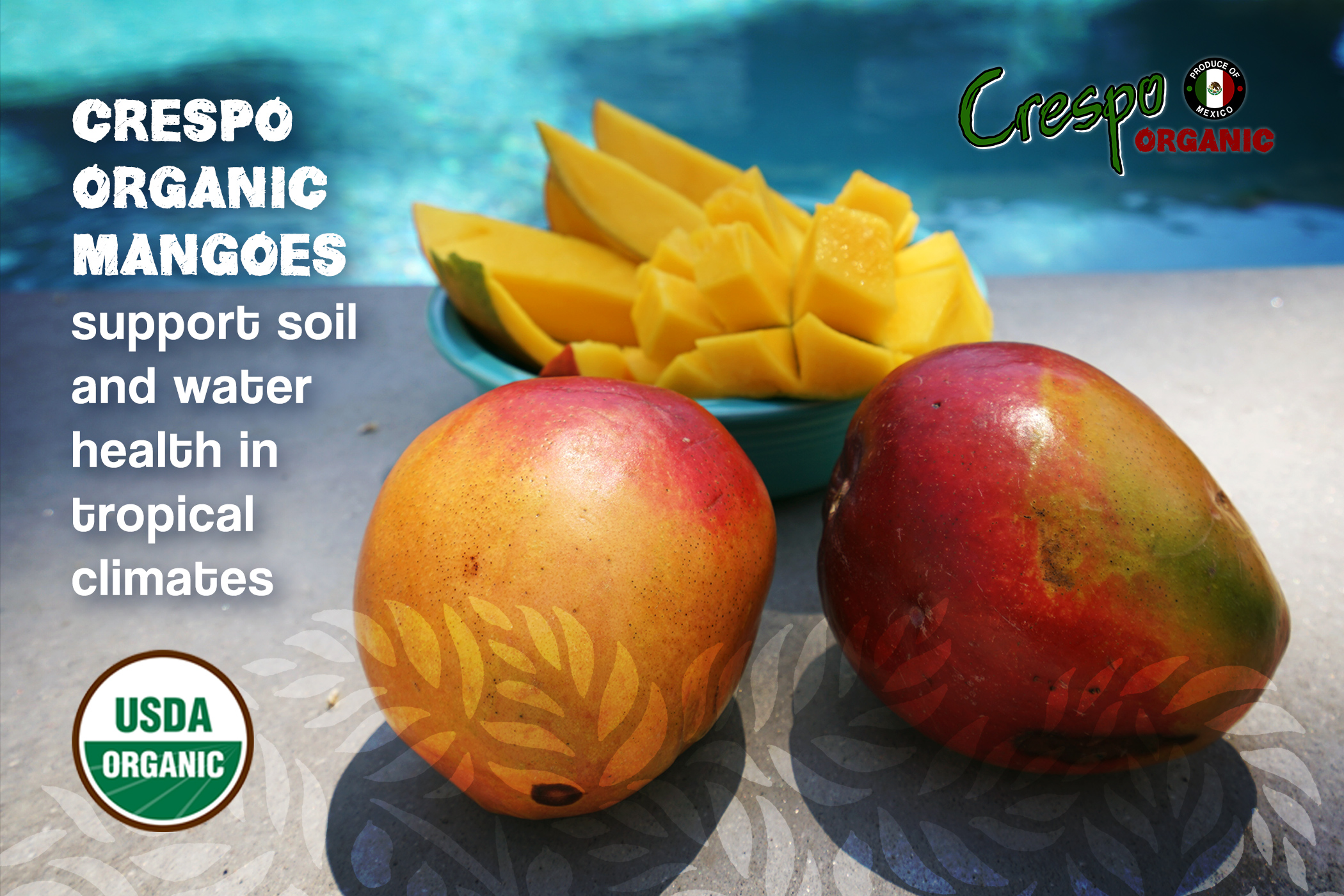Certified Organic Mangoes vs. The Feel-Good Trap
Beyond the buzzwords, only certified organic delivers the guarantee of health
It’s Mango Wellness month and today we want to talk about fluff and more importantly that organic consumers aren’t fooled by it. Data shows that organic consumers tend to be more educated about the supply chain, they ask more questions, dig deeper, and demand substance behind the label the invest in. To earn their trust, you have to do the real work—certified organic work. We need to keep doing the work repeatedly and when we do, history and data proves that integrity holds.
But it’s tough out there. Most of us in the organic sector feel the pressure. New competition is creeping in, leading with smoke and mirrors instead of integrity. No one said this industry plays fair. So instead of losing ground or wasting time complaining, I remind our organic community: we’ve got to keep doing the work. During Mango Wellness Month, that truth-telling is part of the job.
Everyone in the chain—from grower to retailer—has to meet what certified organic requires: full traceability, transparency, and integrity in every step. There’s always someone offering cheaper fruit and a feel-good half-story. The only way to hold ground is by showing the whole picture and standing firm in the work. If you want to attract and keep organic customers, you have to be in it for the long haul.
Crespo Organic mangoes are USDA certified organic—backed by full traceability, not buzzwords. But greenwashing is everywhere, aimed straight at informed and loyal organic shoppers. As consumers demand cleaner food, safer farming, and fairness, many sellers cut corners—using words like “natural” or “sustainable” without making real changes. It’s manipulation masked as virtue. And the average seller is more than willing to invest in greenwashing just to grab a little of that loyalty — and high dollar support.
But if it’s not certified organic, it falls short. Every time.
Social responsibility without full clarity of inputs — without transparency at the source — isn’t responsibility at all. If you’re growing mangoes in Mexico, responsibility starts and ends there; in the farming communities where the fruit is grown and packed. The connection must be rooted in certified traceability all the way to the consumer. Anything less is just fluff — and organic consumers deserve more. So do the hands (and the soil) that grow the food.
The Illusion of Feel-Good Labels
Non-certified claims like “natural” or “sustainably grown” sound good but carry no regulation or oversight. With mangoes, that lack of clarity matters. Without certification, there’s no way to know if the fruit was grown with glyphosate, bloom sprays, fungicide dips, or irradiation. There’s no guarantee that the soil, water, or people involved were protected.
USDA Organic is the only federally regulated, third-party-certified system that enforces clear rules and traceability from seed to shelf. Without it, you’re guessing.
The Assurance of USDA Organic Certification
No GMOs Allowed §205.105 GMOs are prohibited. While GMO mango trees aren’t in use, conventional systems use GMO-derived fertilizers, enzymes, and post-harvest treatments—all banned in organic.
No Synthetic Pesticides, Herbicides, or Fungicides §205.105 & §205.206 Organic bans toxic chemicals like glyphosate, paraquat, and chlorpyrifos. Conventional mango farming in Mexico uses glyphosate, imidacloprid, thiabendazole, and imazalil—linked to cancer, pollinator decline, and environmental harm.
Glyphosate Update (Mexico) Mexico planned to phase out glyphosate by 2024, but the ban was delayed under pressure. It’s still in use.
No Synthetic Fertilizers §205.203 Organic requires compost, cover crops, and soil biology. Conventional mango farming uses synthetic NPK inputs like urea and ammonium sulfate, which degrade soil and pollute water. Organic prohibits all of them.
No Sewage Sludge (Biosolids) §205.105 Organic bans sewage sludge. It’s still used in parts of Mexico facing water scarcity, carrying risks of heavy metals and pathogens. Organic requires clean inputs and safe water.
No Irradiation §205.105 Irradiation, used in conventional mangoes to extend shelf life, can alter fruit quality and degrade antioxidants. It’s unlabeled, often undisclosed. Organic bans it outright.
Pest and Disease Must Be Preventive First §205.206 Organic growers use airflow, biodiversity, and soil health to prevent problems. Conventional relies on reactive spraying. Organic builds resilience.
Soil Fertility Must Be Built Naturally §205.203 Compost and cover crops feed the soil. Synthetic fertilizer breaks it. Organic restores microbial life and long-term productivity.
Crop Rotation and Intercropping Required §205.205 Even for mangoes, rotation and ground cover are required. Organic systems restore what monocultures deplete.
Soil and Water Protection Required §205.200 Organic protects soil and water by law. No runoff. No chemical leaching. Just stewardship.
Biodiversity and Conservation Are Required (NOP 5020) Organic farms must support ecosystems and prevent deforestation. Conventional farms don’t have to. Organic takes responsibility.
Annual Third-Party Inspections §205.400–§205.406 No audit, no certification. Organic is reviewed annually, not trusted blindly.
Full Traceability Required §205.103 & §205.201 Every mango must be traceable from seed to shelf. Conventional systems don’t require this. Organic does.
Use of Organic Seeds Required §205.204 Organic seeds must be used when available. Never GMO or chemically treated.
Only Approved Inputs Allowed §205.601–§205.602 No gray areas. If it’s not on the list, it’s not allowed.
Records Must Be Kept for 5 Years §205.103 Organic farms must document everything. No shortcuts.
Comprehensive Organic System Plan Required §205.201 Every operation must have a detailed, certifier-reviewed plan. It’s not optional.
Land History Must Be Clear §205.202 Land must be clean of banned substances for three years before a certified harvest.
Buffer Zones Required §205.202(c) Organic fields must be protected from drift and runoff. That’s built into certification.
Post-Harvest Standards Matter §205.270–§205.272 Organic fruit must be washed and packed in clean, certified facilities using approved methods only. No fungicides, waxes, or chemical dips.
Labeling and Claim Accuracy Enforced §205.300–§205.311 Certified organic labels must be accurate. False claims are a violation of federal law.
USDA Organic is the only system that ties all of this together. Anything else is a promise. This is the guarantee.
Certified Organic = Regenerative by Law
Organic mango farming doesn’t just avoid harm—it improves land, water, biodiversity, and farmer knowledge by design.
- Soil is built through compost, not stripped by chemicals.
- Pesticides are banned, not just reduced.
- Native habitat and beneficial insects are supported.
- Water is protected. Runoff is prevented.
- Carbon is stored in tree roots and soil.
- Waste is composted back into the orchard.
- Farmers gain knowledge and reduce chemical dependency.
This isn’t marketing. It’s how the system works.
Certified Organic Protects Farmers, Too
Human rights start with a pesticide-free field. Organic mango farming eliminates toxic exposure, protects communities, and promotes economic stability.
- No glyphosate, chlorpyrifos, or imazalil.
- No spraying during harvest.
- Fewer acute and chronic health risks.
- Higher prices and better contracts.
- Knowledge stays in the community.
Certified organic makes safety enforceable.
Why It Matters to Consumers
Choosing certified organic mangoes means:
- Cleaner Fruit: No synthetic chemicals. No guesswork.
- More Nutrients: Higher antioxidant and vitamin levels, fewer degraded compounds.
- Systemic Impact: Every purchase supports better soil, water, and labor practices.
Regenerative. Traceable. Nutrient-Rich.
Organic mangoes are better for the land, the people who grow them, and the people who eat them.
Everything else is just fluff.
